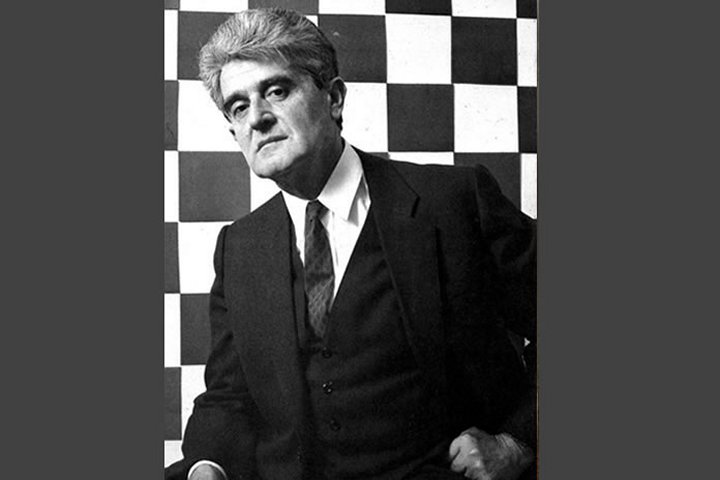Born in Belgrade on 23 May 1930, Matanovic lived a life completely dedicated to chess, as a player, coach, trainer and writer. His first major success came in 1948, at the age of 18, when he won the Yugoslav Junior Championship. Soon afterwards he joined the Yugoslav senior national team and was a regular member of the Yugoslav Olympic team, winning numerous team and individual medals.
He became a grandmaster in 1955, at the age of 25, and won the Yugoslav national championship three times, in 1962, 1969 and 1978. Matanović was a representative of Yugoslav chess glory, when together with Gligorić, Ivkov and Matulović they were a force to be reckoned with, the second chess superpower in the world after the USSR.
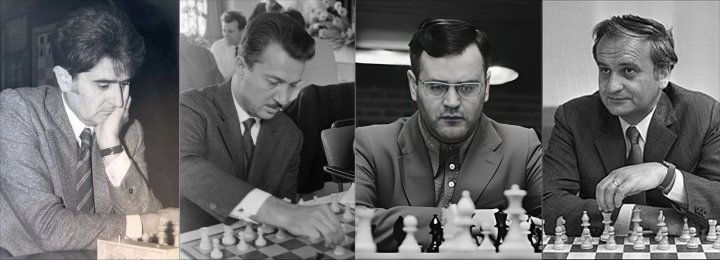
From left to right: Aleksandar Matanović, Svetozar Gligorić, Milan Matulović and Borislav Ivkov | Photos: Chess Informant archive
His most important legacy will always be the Chess Informant, the leading pre-digital chess publication of which he was a co-founder and its driving force. The chess world will be in his debt for inventing a universal "chess language". (To find out more about the Chess Informant and its history, see The Power of Information: The Chess Informant and The Chess Informant today.)
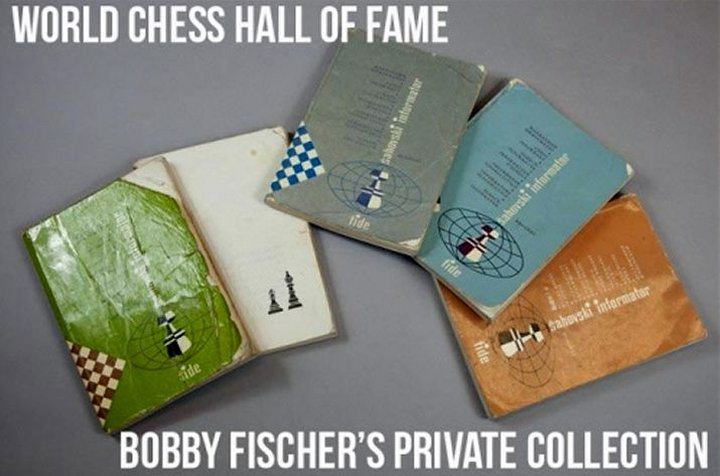
Bobby Fischer liked the Chess Informant. The photo shows copies he owned, displayed at the World Chess Hall of Fame in Saint Louis.
The Chess Informant has been kept alive until today, despite the digital boom, thanks to a collective run by Vitomir Bozic, the son of Aleksandar Bozic, one of the co-founders and creative heads of Chess Informant. Vitomir was raised by former Yugoslav chess royalty. He says:
"It is interesting that I did not learn to play chess from my father, who was also an active chess player, but at the age of 4 Matanovic and Gligoric were my teachers. My father thought that one chess nut in the family was enough."
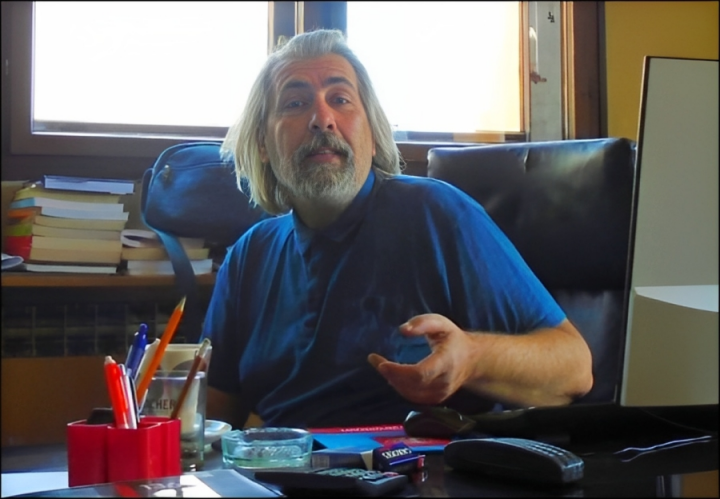
Vitomir at the office of the Chess Informant, June 2018 | Photo: Diana Mihajlova
After Matanovic's death, Vitomir shared some of his memories in a candid communication over the internet:
"We lived in the same area of Belgrade, 200 metres apart. We often went to the office of the Informator together or came back from work together. I knew him since I was a child because he was a close friend of my father and we were often guests at his home. His son is a bit older than me, and we used to hang out while our fathers "dissected" the latest games."
Matanovic lost his father at an early age, a month before his 11th birthday, in 1941, when the Kingdom of Yugoslavia and Belgrade was occupied by the Germans.
"Matan (as he was known to his friends), Milivoj Molerovic and my father, Aleksandar Bozic, met during the occupation, naturally through chess. Years later the trio, with the help of two other colleagues, invented a system of signs, a 'chess language' as Matanovic called it, and in 1966 founded the Informator, the Chess Informant."
I had heard that Matanovic cultivated a strong personal and professional bond with another Yugoslav chess legend, Svetozar Gligoric, about whom Vitomir told me the following:
"Gligoric was not in Belgrade during the Second World War and they met only after the end of the war. And they became friends forever. One of Matanovic's last public appearances was at the beginning of 2023, at the celebration of the centenary of Gligoric's birth. There Matan gave a phenomenal, inspiring speech in honour of his friend."
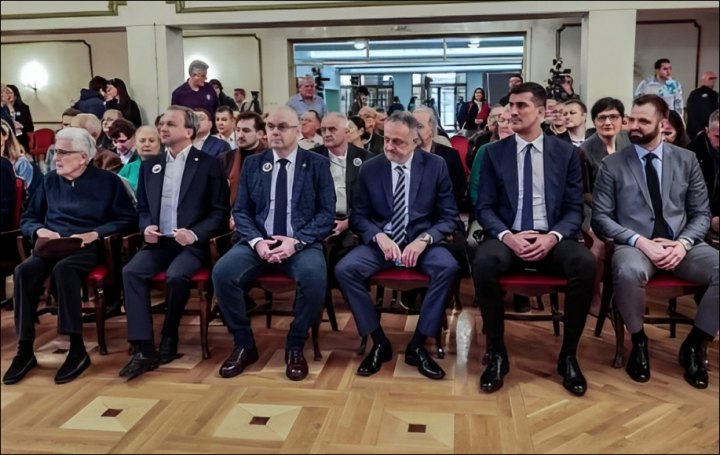
At the centenary of Gligoric's birth, Matanovic is seen on the far left, next to FIDE President, Dvorkovich | Photo: FIDE
Matanovic and Gligoric shared many chess joys and tribulations during their long friendship. In his last article for the Serbian daily "Politika" Matanovic tells an anecdote: at an evening party during a championship in Zagreb Gligoric hurried to ask a young girl to dance. He got the dance, but the girl later became Matanovic's wife.
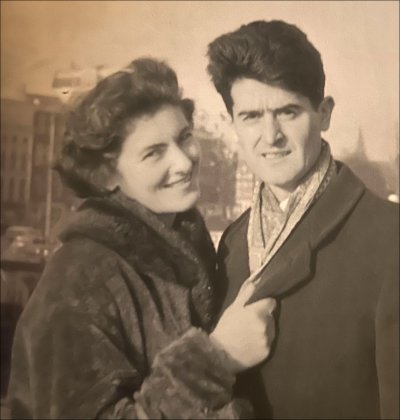
Matanovic with his wife Vesna in Amsterdam, 1960 | Photo: Chess Informant archive
Vitomir goes on to say:
"He lived in Belgrade all his life. He had a cottage in the village of Krcedin, on the Danube, near Belgrade. He spent the summer months there with his wife Vesna."

The Danube flows through the picturesque village of Krcedin, Matanovic's favourite place to relax | Photo: Wikipedia
Matanovic was a prolific journalist who wrote for various media in the former Yugoslavia. In Vitomir's words:
"He was very well known throughout Yugoslavia, because in the 70s and 80s he was a regular guest on television in the sports programmes 'Indirect', 'The World of Chess', etc. At that time Gligoric, Matanovic, Ivkov and Ljubojevic were extremely popular, they were the heroes of Yugoslavia. They were idolised like rock stars today."
The above-mentioned article for Politika was written by Matanovic at the invitation of its editors and published on the eve of his 93rd birthday. It was a short biographical account that turned out to be a farewell. He died two and a half months later. Among other things, Matanovic recalls the popularity that chess gained in his country after Yugoslavia won the 1950 Dubrovnik Olympiad:
"After our team's victory at the Dubrovnik Olympiad, chess grew wings. Like mushrooms after rain, chess tournaments, team competitions, clubs sprang up everywhere; invitations poured in to our chess players from all over the world. The years passed. I travelled from tournament to tournament. From Beijing to Moscow and London, from Indonesia to the Congo...."
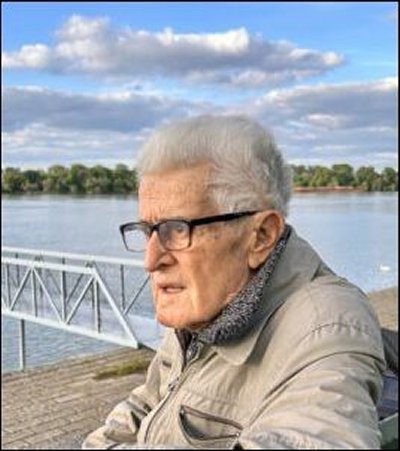
One of the last photos: Matanovic by the Sava River in Belgrade, May 2023 | Photo: Serbian Chess Federation
The article in Politika is reproduced on the website of the Serbian Chess Federation. Here is an English version, translated from Serbian by Diana Mihajlova.
Matanovic defeated some of the greatest players of his time, including Tartakower, Bogoljubov, Gligoric, Keres, Larsen, Geller, Hort, Portisch, Stein, Olafsson, Ljubojevic, Polugaevsky, Petrosian, Ivkov, Andersson and Timman. One of his most famous victories was against Mikhail Tal at the Interzonal in Portoroz, Slovenia in 1958. Tal won the tournament at which he suffered only one defeat - against Matanovic.
Links
GM Aleksandar Matanovic dies at 93
